Kimberlee Archie, the city’s first equity and inclusion manager, and Libby Kyles, CEO of the YWCA of Asheville, have left high-profile jobs with a mission of improving racial equity in the city within a month of each other.


Kimberlee Archie, the city’s first equity and inclusion manager, and Libby Kyles, CEO of the YWCA of Asheville, have left high-profile jobs with a mission of improving racial equity in the city within a month of each other.
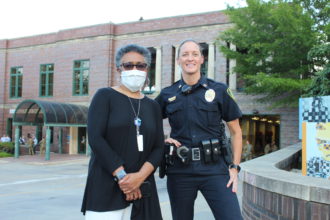
Asheville City Council members voted 5-2 to adopt a budget amendment that will cut APD funding by $770,000, a roughly 2.5% drop from the $30.1 million allocation originally proposed by City Manager Debra Campbell in May.
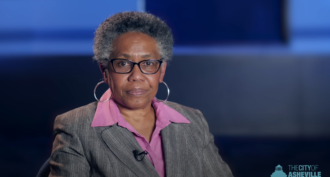
City staff hosted listening sessions to learn how residents envision the delivery of public safety services. But Asheville City Council must vote on budget allocations for the remainder of the fiscal year on Tuesday, Sept. 22, leaving little time to synthesize and consider participants’ input

The looming eviction crisis has threatened renters for months, teasing tenants with temporary relief measures that end just when cash-strapped residents need them the most. In North Carolina, up to 42% of households are at risk of eviction.

At a time when COVID-19 makes meeting up for in-person sports less safe, says Asheville Parks and Recreation staffer Maxime Pierre, virtual activities provide an outlet for competition and help to keep the department relevant. But he says video games also allow the city to engage with a larger group of residents than had been served through traditional sports.

“Reasonable appropriations should go toward weed management.”
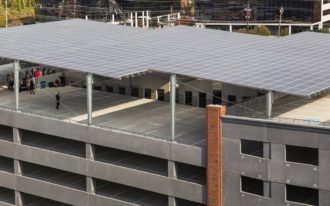
Together, the city of Asheville and Buncombe County approved over $11 million in funding to install roughly 7 megawatts of solar power at public facilities and area schools. The projects are anticipated to save the governments and local schools roughly $650,000 in electricity costs in the first year and more than $27 million over the installations’ 30-year operational life.

“In our plan to build generational wealth for Black Ashevilleans, we can look at direct compensation for families and descendants with history in Asheville.”

“A logical inference is that things would have been a lot worse, sooner without the prompt action taken by our local leaders.”

Two lawsuits filed in 2018, both of which reached final settlements on June 8, challenged several of the fees Asheville has used to raise money for repairs and updates to the water system. Together, the settlements could have the city pay nearly $2 million to dismiss claims that those fees were charged illegally and prevent the collection of $37 million in fees over the next five years.
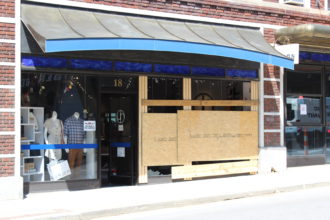
Tensions were high as downtown Asheville prepared for another night of anticipated protests, despite a new citywide curfew that will go into effect at 8 p.m.

Support for programs in Buncombe County that serve older adults — one of the groups most vulnerable to severe illness from COVID-19 — is set to decrease by more than $78,000 from the current fiscal year, according to a new budget proposed by the county’s Health and Human Services department.

Since March 16, local government boards and commissions meetings have been canceled, meaning citizens have largely been shut out of formal policy discussions as Asheville City Council and the Buncombe County Board of Commissioners manage the tandem economic and public health crises caused by the coronavirus.
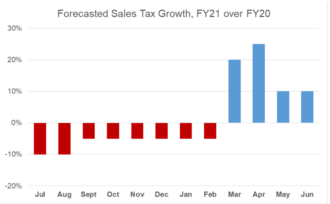
The total fiscal 2020-2021 city budget proposal stands at $184.6 million, a 3% decrease from last year’s total of $190.3 million, and will continue funding for existing services while limiting new programs, service enhancements and initiatives. The property tax rate would remain the same under the proposal, and no fee increases are recommended.

Funds supported with tax money from Buncombe County, the city of Asheville and the Tourism Development Authority are being managed by the nonprofit Mountain BizWorks. Because of this arrangement, government and TDA officials say they will play no direct role in determining what area businesses and nonprofits receive public dollars.

“The latest trail closings seem a bit excessive. Perhaps those who don’t get out much envision hikers and bikers swarming into group hugs or the like?”
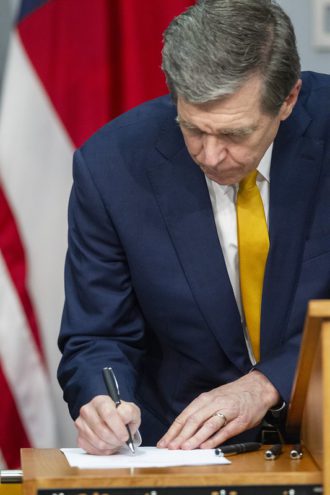
The two bills signed into law by Gov. Roy Cooper on May 4, both unanimously passed by the General Assembly, together designate nearly $1.6 billion for the state’s COVID-19 response and grant flexibility in many areas of regulation.

“It does seem odd that the trees were removed from spots that homeless people cool off at or take shelter to wait for the bus.”

According to the formal agreement, up for a Board of Commissioners vote on Tuesday, April 21, both city and county staffers would remain employees of and still be paid by their respective governments while carrying out their new duties. Asheville and Buncombe County would be required to cover the expense of all personal protective equipment for workers from the other government.

“We need help. We are pleading with the city of Asheville, with Buncombe County and with the state of North Carolina to provide us with some relief and some assistance.”

At a press conference on April 8, Buncombe County Board of Commissioners Chair Brownie Newman signed a new stay-at-home order, set to take effect when the previous order expires at 6 a.m. on Thursday, April 9, that will only expire when it is “repealed, replaced or rescinded.”